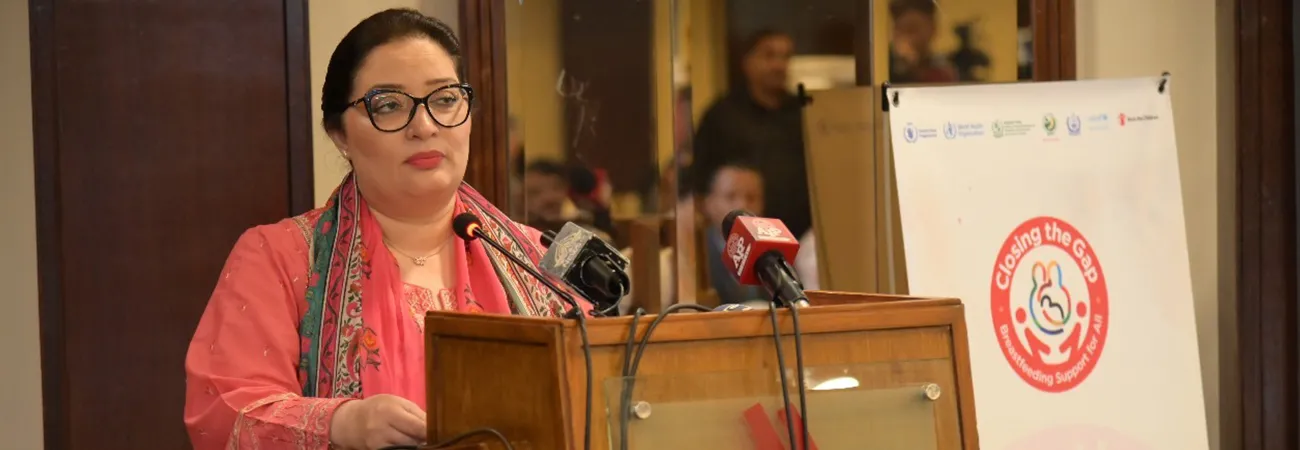i NEWS PAKISTAN
To protect the breast feeding females from exacerbating impacts of climate change, policies are necessary to chalk out in Pakistan, opined Coordinator to the Prime Minister on Climate Change and Environmental coordination, Romina Khurshid Alam while addressing the seminar ‘National Advocacy & Sensitisation with Parliamentarians on the World Breastfeeding Awareness Week’. She said, “Breastfeeding provides infants with essential nutrients, boosts their immune systems, and fosters an emotional bond between mother and child. So, its promotion through education, policies and community support is important. Climate change impacts in the country equally disturbing the maternal health and child nutrition”. In the said event, organized by Save the Children in collaboration with Climate Change and Environmental Coordination Ministry, WHO, UNICEF, and World Food Programme, she shared that climate change intensifies poverty and food insecurity, the most vulnerable segments of our population—women and children—are at increased risk of malnutrition.
To cope with this situation, the integration of climate resilience into our national nutrition programmes and policies is vital. The PM’s aide Romina Khurshid emphasised that breastfeeding lies at the heart of our nation's future—empowering maternal, child, and adolescent nutrition in Pakistan. Achieving adequate and health-boosting nutrition is not just a health challenge, it is also a cornerstone for the development of our society, economy, and resilience to the climate change. She highlighted that breastfeeding during the first six months of life was not as widespread as it should be. More efforts are necessary to highlight this issue countrywide at all official and media levels. It is vital to implement family-friendly policies supporting working mothers. Ms. Alam said, “women in Pakistan, play an essential role in both the economy and the home. So, policies such as paid maternity leave, flexible work hours, and access to quality childcare are crucial. The government has taken various steps towards this by enhancing maternity leave policies and encouraging workplaces to adopt more family-friendly practices.
However, the government is also pushing for broader implementation in the private sector as well”. Secretary of the Women's Parliamentary Caucus Dr. Shahida Rehmani, addressing the event said, “one of the most pressing challenges we face in protecting breastfeeding is the aggressive marketing of breast milk substitutes. In Pakistan, this issue is particularly acute, with widespread marketing that often targets vulnerable mothers, leading them to believe that formula milk is a better option”. She said that The International Code of Marketing of Breast Milk Substitutes is a global standard designed to curb these practices, and Pakistan has committed to upholding it. Promoting breastfeeding is not just a matter of health; it is a matter of national responsibility. Our commitment to empowering maternal, child, and adolescent nutrition in Pakistan must be rooted in our cultural values, supported by robust policies, and reinforced by our efforts to combat climate change, added Dr. Shahida Rehmani.
Credit: Independent News Pakistan









